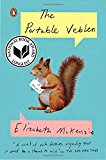Summary | Excerpt | Reviews | Beyond the book | Read-Alikes | Genres & Themes | Author Bio

Mike Muñoz, the narrator of Jonathan Evison's Lawn Boy, repeatedly expresses his aspiration to write the "Great American Landscaping Novel." His humble ambitions aside, readers of Mike's story may find themselves wondering, first, why there hasn't been a Great American Landscaping Novel and, second, whether Lawn Boy might actually be that very thing. Slight, straightforwardly written, and extremely funny, Evison's novel is slyly profound, taking on many of the big issues plaguing contemporary American society – all cloaked in an often hilarious story of one young man's life-changing year.
Mike feels stuck. It's a few years after high school, but he's still living at his mom's house, taking care of his developmentally disabled older brother Nate while his mom works two jobs to pay the bills. Mike secretly loves his work as a landscaper – and he knows he's one of the best there is – but too often the (largely white) homeowners who hire the crew that Mike's on have ridiculous expectations, from cleaning garages to picking up dog droppings. About the only thing that nurtures Mike is his regular trip to the library, a place where he's felt safe and sustained since childhood: "At the library, a little ferret of a kid like me had a chance. The only currency he needed was a library card." Mike longs to see himself and his world in the books he reads – but despite glimpses in decades-old naturalist books like Frank Norris's The Octopus or Upton Sinclair's The Jungle – Mike sees few working-class and poor people reflected in contemporary novels; instead they are filled with characters who are too often privileged and self-absorbed.
Mike has no time for self-absorption. He's too busy hustling to figure out where his next beer – let alone his next paycheck, once he gets fired by the landscaping company – might come from. He's too busy keeping Nate from flipping out in a restaurant to analyze his attraction to a waitress there; he's too busy cringing at his best friend's racist and homophobic comments to analyze his own sexual and ethnic identity; and he's definitely too busy making ends (barely) meet to analyze his own role as a cog in the machine that perpetuates systemic inequality.
Set on Washington State's Bainbridge Island, an island that (like Nantucket or Martha's Vineyard) has a reputation for affluence but is also fueled by a largely unseen or unacknowledged working class, Lawn Boy uses a lens of humor and social satire to examine profound truths about how our society functions – or doesn't – and who can get ahead and who gets left way behind. Evison's prose is sharp and the situations he describes (such as an ill-fated occupation of a Walmart and an even less well-advised anti–puppy mill protest outside a pet store) offer opportunities for broad humor. But he also clearly cares deeply for the characters about whom he writes, and Lawn Boy is also a profoundly humanistic and hopeful novel at its core. Young Mike is an idealist – and readers - adults and young adults alike - will be rooting for him to upend the systems that seem to conspire to keep him down. Funny, romantic, and big-hearted, Lawn Boy just might be the Great American Landscaping Novel we didn't know we needed.
![]() This review was originally published in The BookBrowse Review in May 2018, and has been updated for the
April 2019 edition.
Click here to go to this issue.
This review was originally published in The BookBrowse Review in May 2018, and has been updated for the
April 2019 edition.
Click here to go to this issue.

If you liked Lawn Boy, try these:

by Elizabeth McKenzie
Published 2016
An exuberant, one-of-a-kind novel about love and family, war and nature, new money and old values by a brilliant New Yorker contributor

by Maria Semple
Published 2013
A compulsively readable and touching novel about misplaced genius and a mother and daughter's role in an absurd world.
He who opens a door, closes a prison
Click Here to find out who said this, as well as discovering other famous literary quotes!
Your guide toexceptional books
BookBrowse seeks out and recommends the best in contemporary fiction and nonfiction—books that not only engage and entertain but also deepen our understanding of ourselves and the world around us.